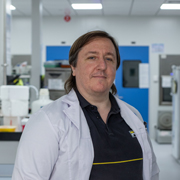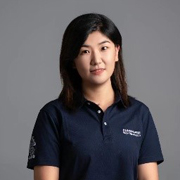 CRG - BGI Joint International PhD Programme
CRG - BGI Joint International PhD Programme
CRG - BGI Joint International PhD Programme
Projects Available | Eligibility criteria | How to apply | Selection process | Call calendar | Contact
The Centre for Genomic Regulation (CRG) in Barcelona, Spain, and BGI, China, are recruiting students to join the CRG-BGI Joint International PhD Programme. This collaborative initiative aims to leverage the strengths of both institutions to advance research at the cutting edge of genomics, integrating novel technologies like spatial transcriptomics, single-cell genomics, and advanced omics to tackle major scientific challenges.
Programme Objectives
We aim to culture future leaders in life sciences who are ready to fully engage with the challenges and rewards of this cross-cultural, cross-disciplinary experience.
The CRG-BGI Joint PhD Programme is designed with the following key goals:
- Develop next-generation researchers: Establish a collaborative PhD programme that fosters talent to address complex issues at the intersection of bioinformatics, omics technologies and AI.
- Innovative dual supervision: Facilitate joint project supervision led by experts from both CRG and BGI, ensuring diverse perspectives and rigorous guidance for PhD candidates.
- Strengthen CRG-BGI collaboration: Reinforce and expand the collaboration between CRG and BGI to drive forward research and innovation in advanced genomics and biomedical technologies.
- Access to advanced genomics facilities: Engage directly with cutting-edge technologies, such as spatial transcriptomics and single-cell genomics, placing you at the forefront of genomics research.
- Dual Supervision and mentorship: Benefit from expert mentorship and diverse perspectives through joint supervision by group leaders from both CRG and BGI.
- Focus on innovation and collaboration: Participate in interdisciplinary, collaborative research that addresses complex bioinformatics and omics challenges, strengthening your network and career opportunities.
- Integrated training across institutes: Spend equal time at CRG and BGI, gaining a well-rounded experience with comprehensive training in scientific expertise and essential transferable skills.
- International Exposure and Cultural Immersion: Work at both CRG in Spain and BGI in China, gaining valuable global research experience in diverse environments.
Scroll down to learn more about the 4 CRG-BGI PhD fellowships available
Deadline 4th February 2025
On the application form, you will be able to choose up to two research labs for which you wish to apply
Are you ready to prepare an outstanding application?
Join our online workshop to learn how to find the right lab for your PhD, prepare an outstanding application, and get expert tips to boost your chances of success!
Projects available
You can choose up to two projects for your application:
P1 - Exploring How Mechanobiology Drives RNA Splicing and Nuclear Dynamics
The Al Jord's lab at CRG Mechanics of Organelle Remodeling conducts interdisciplinary research aimed at understanding how cytoskeletal forces impact nuclear dynamics at various scales, both in health and disease. The group focuses on the mechano-regulation of nuclear biomolecular condensates and RNA-processing.
The Lian's group at the “Cell Omics Research and Development Centre” plans to develop pioneering new technologies for single-cell-full-length transcript sequencing and mapping transcript distribution at subcellular resolution. These advanced technologies will be applied to elucidate how cytoskeletal forces affect RNA processing and localization dynamics within cells.
Mechanobiology | RNA Splicing; Cytoskeleton | Nucleus | Spatiotemporal Transcriptomics
PhD Project
How do cytoplasmic forces relate to RNA processing and distribution in the nucleus? This essential mechanobiology question, with significant implications for health and therapeutics, remains largely unexplored and will be the focus of this interdisciplinary project. As a PhD candidate, your main objectives will be to i) investigate how cytoskeletal forces influence the kinetics of nuclear RNA splicing in a spatiotemporal manner using advanced live imaging techniques, and ii) develop and apply cutting-edge single-cell spatial transcriptomics approaches to uncover how the cytoskeleton regulates splicing dynamics.
What are we looking for?
The ideal candidate should be a motivated and curious scientist ready to engage in cross-disciplinary and international research in biology and omics technology development. A background in Cell Biology, Molecular Biology, and/or Biophysics is essential. The candidate should share an enthusiasm for investigating the mechanisms of mechanobiology, biomolecular condensates, and RNA. Creativity, independence, and strong communication skills in English are important, as well collaborative spirit to thrive in a diverse research environment.
P2 - Analyzing Structural Variation and Genome Function with Long-Read Multiomics
The T2T Genomics Team at the BGI led by Chentao Yang, specializes in constructing high-quality reference genomes for vertebrates, with a particular focus on telomere-to-telomere (T2T) genomes, employs multi-omics sequencing tools and utilizes comparative genomics and population genetics methods to analyze various biological issues, including genetic variation, genome evolution, and complex regions.
The Repetitive DNA Biology (REPBIO) lab at the CRG, led by Bernardo Rodríguez-Martin, utilizes the latest advances to decode nucleotide sequences, and develops algorithms for examining the role of repetitive DNA in genome function and evolution. Utilizing advanced long-read sequencing and creating computational tools, the lab strives to understand these repeats and their contributions to structural variations, including cancer-related processes and polymorphic structural variants.
Long-reads | Multiomics | Structural Variation | Variant Effects | Repetitive DNA
PhD Project
Polymorphic structural variants (SVs), including deletions, insertions, or duplications of DNA sequences, are a major source of human genome variation. Despite a decade of population genetic efforts, the extent and impact of SVs remain poorly understood, with many phenotypically relevant and disease-causing SVs yet to be discovered. This PhD project aims to gain insight into the impact of SVs on genome chromatin conformation and gene function through long-read multiomics and computational method development
What are we looking for?
The ideal candidate for this PhD project should have a strong background in genomics, molecular biology, or bioinformatics, with a particular interest in structural variation and its functional impact on the genome. Proficiency in long-read sequencing technologies and multi-omics data analysis is essential as well as advanced computational and programming skills (e.g., Python, R). The candidate should be highly motivated, possess strong analytical and problem-solving skills, and be able to efficiently communicate in English (oral and written).
P3 - Functional and regulatory dynamics of alternative promoters during human embryogenesis
The Ya lab at the BGI focuses on multi-omics research on maternal and child health by conducting two aspects of studies. One aspect involves multi-omics studies in prospective birth cohorts for establishing biomarkers for gestational diseases and birth defects. Another aspect involves the transcriptome atlas of early human embryogenesis and disease using spatial transcriptome, single cell/nuclei RNA transcriptome, single cell/nuclei ATAC, etc.
The Irimia lab at the CRG/UPF investigates how transcriptomic diversification through various mechanisms contributes to embryogenesis and evolution. Their research blends computational and experimental biology, and uses different models, from early mammalian development to neurogenesis and pancreatic cell maturation.
Alternative Promoters | Single Cell RNA-seq | Single-nucleus ATAC-seq | Embryo Development | Comparative Transcriptomics
PhD Project
In each cell type, genes can be expressed using alternative promoters, often generating different protein isoforms. How the use of alternative promoters during human embryogenesis is regulated and its functional impact remain largely unknown. Here, we will identify alternative promoters that are differentially regulated during development with cell type resolution. We will produce single-cell 5' RNA-seq data at different developmental stages, and combine it with available matched single-nucleus ATAC-seq data to identify regulatory elements. Comparison with similar mouse datasets will provide insights into the conservation of transcriptional regulation during evolution.
What are we looking for?
Candidate needs to be familiar with high-throughput sequencing technologies, ideally focused on single-cell omics studies and proficient in at least one programming language such as Python, Perl or C/C++, R, with rich programming and plotting experience and good background on statistics. He/she should have strong sense of responsibility, be good at independent thinking and have good communication skills in English, as well as team organization skills.
P4 - New approaches to identify and characterise vulnerabilities in Diffuse Midline Glioma (DMG)
Di Croce's lab at CRG focuses on understanding the mechanisms of gene regulation and epigenetics, particularly in the context of chromatin dynamics and transcriptional control in stem cells and cancer. The lab combines molecular biology, genomics, and cutting-edge epigenomic technologies to reveal key pathways involved in cell fate decisions and cancer progression.
Wu's lab at BGI Research focus on developing high-throughput single-cell omics technologies, as well as underlying the key states or features of malignant cells and microenvironmental components during tumor growth, relapse and metastasis, and drug resistance, using cutting-edge single-cell omics and spatial omics technologies.
Epigenetics | Paediatric Brain Cancer | Spatial Transcriptomics | Single Cell Analysis | Gene Regulation
PhD Project
Diffuse Midline Glioma (DMG) is an incurable paediatric brain cancer. In our lab, we have identified several potential targets that, when inhibited, halt cancer growth. The PhD student will use single-cell analysis and spatial transcriptomics to investigate: (1) the mechanisms of tumor initiation and progression in patient-derived brain organoids developed in our labs, and (2) the pathways involved in tumor regression following inhibition of our top-priority target.
What are we looking for?
A highly motivated student who works closely together with wet lab scientists. The tasks include analysis, interpretation and integration of comprehensive, state-of-the-art genome-wide datasets such as RNA-seq, ATAC-seq and ChIP-seq and development and implementation of analysis pipelines. Applicants are expected to hold an academic degree (BSc, MSc, PhD in Bioinformatics, Biostatistics, or Life Sciences) and be proficient in NGS data analysis (e.g. transcriptome profiling data sets), including scripting, programming, statistical analyses and applying common standard analysis tools and algorithms (R/Bioconductor, python, etc). Experience in epigenetic mechanisms of gene regulation and analysis of circadian rhythms is welcome.
P5 - Mapping cognitive impairment and neurodegeneration in Down Syndrome and Alzheimer’s using Spatial Transcriptomics
Mara Dierssen's lab at the CRG focuses on understanding the neural and molecular mechanisms underlying cognitive function and dysfunction, particularly in relation to intellectual disabilities, Down syndrome, and neurodegenerative diseases like Alzheimer’s. The lab employs interdisciplinary approaches, including genetics, neurobiology, and behavioral analysis, to explore how genetic and transcriptomic changes impact brain circuits and cognitive processes.
Miguel Esteban's lab at BGI focuses on regenerative medicine, stem cell biology, and reprogramming technologies to understand cellular mechanisms underlying tissue regeneration and disease. The lab investigates how stem cells and induced pluripotent stem cells (iPSCs) can be used to model and potentially treat age-related diseases and neurodegenerative disorders.
Alzheimer’s Disease | Down Syndrome | Spatial Transcriptomics | Amyloid Pathology Spread | Tau Pathology
PhD Project
This project investigates circuit-specific and molecular mechanisms driving cognitive impairment and neurodegeneration in Down syndrome (DS), Alzheimer’s disease (AD), and age-related decline. Key outcomes include insights into pathology spread in DS and AD, and transcriptomic changes associated with accelerated aging and disease in both affected and healthy populations.
What are we looking for?
The candidate needs to have a strong interdisciplinary background. This includes Neuroscience and Neurobiology with in-depth knowledge of brain anatomy, neurodegeneration, and disease mechanisms (especially Alzheimer’s and Down syndrome) to interpret circuit-specific and molecular findings. Molecular Biology and Genomics experience is needed, focusing on molecular mechanisms, gene expression, and transcriptomics to identify pathology drivers and changes related to disease and aging. Proficiency in Bioinformatics and Computational Biology is also essential, involving the use of bioinformatics tools for analyzing large transcriptomic datasets (e.g., RNA sequencing) and experience with statistical software (e.g., R, Python) for data interpretation.
P6 - Next-Generation enzyme design using ultra high-throughput screening and AI
Yue Zheng Lab at the BGI is focusing on both protein engineering technologies studies and novel protein tools exploration in research fields of gene editing tools, molecular biological enzymes, and antibodies. The gene editing projects aim to improve the editing efficiency and editing precision of target gene editing tools.
Noelia Ferruz Lab at the CRG is focusing on the implementation and training of large AI models for protein design, in particular language models. We are interested in multimodality, reinforcement learning and explainability techniques with the specific goal of designing new-to-nature enzymes.
Protein Design | Enzyme Engineering | High-throughput Screening | AI Modeling | Reinforcement Learning
PhD Project
The student will primarily focus on the de novo design of deaminases, with the specific goal of improving the editing efficiency and narrowing of the editing windows for the application in base editing. The student will learn AI modeling and ultra-high-throughput screening.
What are we looking for?
Candidate should have strong coding experience, preferably in Python, and previous experience in training neural networks. Basic scientific training in biochemistry, molecular biology or protein engineering is necessary, as well as good communication skills in English.
P7 - Investigating Retinal Regeneration Mechanisms Using Spatial Transcriptomics and Super-Resolution Imaging
The research group of the Zhouchung Shang at the BGI investigates stem cell biology and regenerative medicine in the context of aging and disease. The lab extensively uses single cell and spatial multi-omics approaches.
The group of Pia Cosma at the CRG investigate the mechanisms and factors that regulate somatic cell reprogramming and tissue regeneration in mammals. The lab extensively utilizes super-resolution microscopy to explore the functional organisation of genome in cells and tissues.
Retina Regeneration | Spatial Transcriptomics | Super Resolution Microscopy | Computational Biology | Zebrafish | Chicken | Mouse
PhD Project
Retinal regeneration is highly efficient in zebrafish and chicken but remains limited in mammals. The student will employ state-of-the-art methods, such as spatial transcriptomics and super-resolution microscopy, to uncover the specific cellular mechanisms controlling regeneration in lower vertebrates. The ultimate aim is to enhance endogenous regeneration in mammals. Data integration using computational biology methods will be conducted across multiple species.
What are we looking for?
The ideal PhD applicant should have a strong background in molecular and cellular biology, with a keen interest in regenerative medicine and developmental biology. Proficiency in advanced microscopy techniques and experience in bioinformatics or computational biology for data analysis are highly desirable. Prior experience working with model organisms such as zebrafish, chicken, or mouse would be beneficial.
P8 - New approaches to identify and characterise vulnerabilities in DMG
Di Croce's lab at CRG focuses on understanding the mechanisms of gene regulation and epigenetics, particularly in the context of chromatin dynamics and transcriptional control in stem cells and cancer. The lab combines molecular biology, genomics, and cutting-edge epigenomic technologies to reveal key pathways involved in cell fate decisions and cancer progression.
Miguel Esteban's lab at BGI Research focuses on applying multimodal omics approaches to understand cell fate transitions in different contexts from pluripotency and development to tissue degeneration and regeneration. The lab has multidisciplinary approaches to solve biological problems, including state-of-the-art 3D culture systems for stem cell-derived embryos and organoids, and is progressively becoming translation oriented.
Epigenetics | Paediatric Brain Cancer | Spatial transcriptomics | single cell analysis | gene regulation.
PhD Project
Polycomb Group of proteins (PcG) is a key regulator of the transcriptional programs that maintains stem cell properties and dictates lineage specification thanks to the deposition of transcriptional repressive marks on histone tails. Specific sets of accessory factors define two distinct subcomplexes of PRC2: the PRC2.1, formed by the association with one of the three Polycomb Like proteins (PCLs) together with EPOP or PALI1/2 and the PRC2.2 characterized by AEBP2 and JARID2 proteins.
The PhD student will investigate the mechanisms underlying the kinetics of PCLs recruitment to chromatin during the exit of pluripotency in order to characterise the PRC2.1 role in this developmental stage. The PhD student will impair the function of PRC2.1 complex in mESCs, using CRISPR-Cas9 technology, and characterize by “multi-omics” approach the differentiation towards Neuronal Progenitor (NPCs) and Hematopoietic Stem Cells (HSCs).
What are we looking for?
We are looking for a highly motivated student. The tasks include performing several state-of-the-art genome-wide approaches such as RNA-seq, ATAC-seq and ChIP-seq as well as CRISPR-Cas9 and ‘degron’ technologies. Applicants are expected to hold an academic degree (BSc, MSc Life Sciences). Experience in epigenetic mechanisms of gene regulation and analysis of circadian rhythms is welcome.
Eligibility criteria
Candidates with backgrounds in biological or biomedical sciences, physics, chemistry, mathematics, computer science and/or related disciplines and who fulfil the following eligibility criteria at the time of the call deadline are welcome to apply*.
- The call is open to candidates of any nationality.
- Candidates must have obtained a University Bachelor's Degree and a Master's Degree in biomedical sciences within the European Higher Education System or an equivalent University Degree that allows them to start a PhD thesis in Spain (minimum 300 ECTS). Candidates who expect to be awarded with such a degree by September 2025 are eligible to apply.
- Candidates must have an excellent academic record, previous research experience, and a strong commitment to scientific research.
- Candidates must have a high working knowledge of English.
* If it becomes clear before, during or after the evaluation phase that one or more of the eligibility criteria have not been fulfilled, the application will be declared ineligible and will be withdrawn from any further examination.
How to apply
- Applications must be submitted online - applications by email will not be considered.
- The online application form requests all necessary information for the initial stages of the selection process (General information, education, academic transcripts, scholarships, prizes and awards, research experience, scientific interests and two reference letters).
- If the academic transcripts are not in English applicants should also attach a translation.
- Two reference letters will be automatically requested from the referees proposed by the candidate through the online system.
- Applicants should select a maximum of 2 projects in which they are interested.
Candidates must ensure that all information and documents are included before the deadline, including the reference letters. Incomplete proposals will not be considered.
Once the application is submitted, an acknowledgement of receipt will be automatically sent by e-mail to the applicant.
For any additional information, please check the FAQs
Selection process
The selection will be based on the candidates' academic qualifications, motivation and research experience & excellence.
- Eligibility screening and pre-selection based on the candidate's application, reference letters, research interests, motivation, and fit to the selected labs. If the candidate is pre-selected, he/she will be invited to the next step of the selection process (2).
- Panel interviews will take place on-line on the 21st February 2025 and will evaluate students' general scientific knowledge/research experience, critical thinking and motivation. If the candidate successfully passes the panel interview, they will be invited to the next recruitment step (3).
- Individual Interviews: The one-to-one interviews with the group leaders will take place from the 25th to the 27th of February 2025 online. Full details regarding the interview process will be sent to invited candidates.
- Notification to candidates: Offers will be made to the final selected candidates shortly after the individual interview. Successful candidates are expected to start the PhD by October 2025.
| Call deadline | February 4, 2025 |
| Panel Interviews | February 21, 2025 |
| Recruitment week | February 25-27, 2025 |
| Outcome | March 2025 |
| Start date of fellowships | By October, 2025 |
Contact
For any additional information, please contact:
General info - BGI College: bgi-college@genomics.cn
General info or specific questions about eligibility - CRG Training & Academic Office (TAO): training@crg.eu













